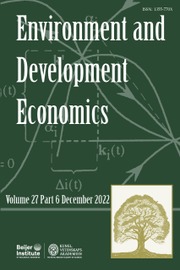Animal Economics
Why does animal welfare matter? For some, it is because people care about animals; for others, it is because animals themselves are morally relevant. Given the importance of welfare in economics research and the debates around climate change and biodiversity loss, more economists are becoming interested in the economics of animal welfare. Animal Economics provides a general introduction to this new field. It explores the complexity of the behavioral attitude of humans toward animals using behavioral economics and explains how existing economic theory can be applied to understand animal welfare as an externality. Combining theory and empirical research to address key issues in animal welfare, including ethical perspectives, public opinion, market demand, and policy design, this book builds on economics principles to explore how to implement optimal policies that reflect human proanimal concerns and the moral status of animals.
- Explains why anthropocentrism poses an ethical problem and outlines how to develop nonanthropocentric approaches in economics
- Explains how existing economic theory can be applied to understand animal welfare as an externality, a public good, a merit good, or another relevant economic concept
- Helps better understand proanimal concerns and provides insights into how policies can be designed to address animal welfare concerns
Product details
December 2025Hardback
9781009699341
250 pages
229 × 152 mm
Not yet published - available from December 2025
Table of Contents
- Preliminaries, 1. Introduction
- 2. Animals in this world
- Part I. The Direct Approach:
- 3. Sentientism
- 4. Assessing animal welfare
- 5. Utility potentials
- 6. The social welfare function
- 7. A simple consumption model
- 8. Animal welfare standards
- 9. Animal population ethics
- 10. Valuing animal welfare
- Part II. The Indirect Approach:
- 11. Proanimal concerns: empirical studies
- 12. Behavioral studies
- 13. Proanimal concerns: theoretical aspects
- 14. An economic model of the meat paradox
- 15. Some economics of pets
- 16. Markets and morals
- 17. Further excursions
- 18. Conclusion.







